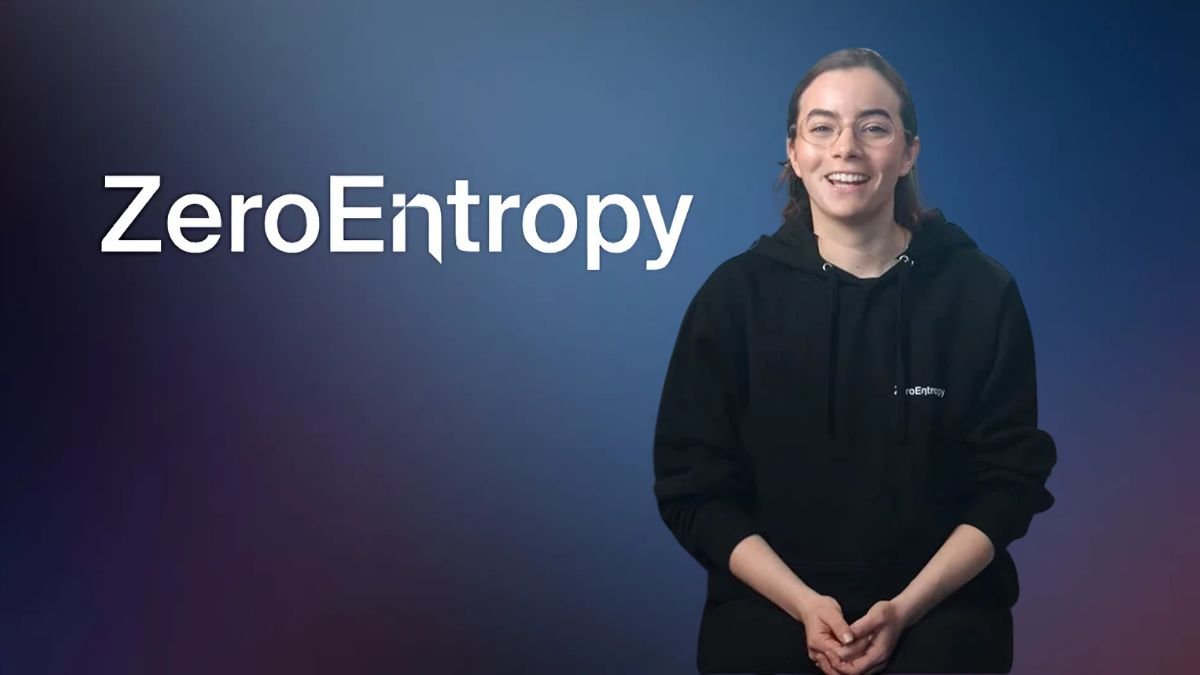The company announced a seed funding round led by Initialized Capital, with participation from Y Combinator, Transpose Platform, 22 Ventures, a16z Scout and a slate of strategic angels. This raise brings fresh capital to a San Francisco-based startup focused on making retrieval both fast and reliable.
As a developer-first platform, it offers an API that handles ingestion, preprocessing, embedding, reranking, indexing and evaluation. Its ze-rank-1 reranker and low-latency retrieval aim to improve search and retrieval-augmented generation (RAG) for apps that need accurate context from messy internal data.
That combination matters for AI agents in healthcare, law, customer support and sales, where better retrieval yields more accurate answers. The overview previews product and infrastructure gains the round will fund, and sets up deeper coverage of architecture, investors and traction in the sections ahead.
ZeroEntropy raises $4.2 M: seed funding details and who’s backing the RAG-first search startup
The seed round, led by Initialized Capital, brought together Y Combinator, Transpose Platform, 22 Ventures and a16z Scout alongside a roster of strategic angels. Notable operator investors include leaders from Hugging Face, Front, Airbyte and OpenAI, signaling strong market confidence.
Initialized Capital leads the round with YC, Transpose Platform, 22 Ventures, a16z Scout, and strategic angels
Entrepreneurs First provided pre-seed support, lifting total capital to roughly $4.4 million. That bench of backers gives the francisco-based startup access to operator networks and technical feedback loops that matter for early product-market fit.
How the $4.2 million seed enables product acceleration, infrastructure scale, and team growth
Funds are earmarked to deepen API features, improve model ranking, and scale infrastructure for higher throughput and lower latency. The goal is to make retrieval dependable across messy internal data and knowledge systems.
Hiring will focus on ML, distributed systems, and information-retrieval engineers to speed developer adoption and customer onboarding. Founder and CEO Ghita Houir Alami remains front and center, reinforcing investor belief in the technical roadmap and go-to-market motion.
Inside ZeroEntropy’s developer-first retrieval stack: API, ingestion, and the ze-rank-1 re-ranking model
The startup’s stack unifies ingestion, indexing, and re-ranking behind a single developer API. That approach removes glue code and lets teams deploy production-grade retrieval quickly.
From ingestion to evaluation
The api handles ingestion, preprocessing, embedding, indexing, re-ranking, retrieval, and evaluation. Developers can point it at messy internal documents and heterogeneous knowledge bases without stitching multiple tools.
ze-rank-1 re‑ranking and benchmarks
The proprietary reranker surfaces the best passages first. On public and private benchmarks, the team reports gains versus alternatives from major providers, improving precision in downstream prompts.
RAG and AI agents
In RAG architectures, precise retrieval and strong re-ranking feed llms the right context. That reduces hallucinations, lowers token costs, and lets agents retrieve relevant evidence fast.
Early adopters and scale
More than ten early-stage customers in healthcare, law, support, and sales use the stack to power agent workflows and enterprise search. The platform emphasizes stateful retrieval systems and consistent behavior under production load.
Market context: the San Francisco-based startup’s positioning in RAG infrastructure and search tools
The search and retrieval landscape in the Bay Area is shifting toward programmatic, pipeline-driven offerings. Startups and established vendors now compete to supply the primitives developers use for retrieval-augmented generation.
Competitors and peers
Players like VoyageAI and Sid.ai attack adjacent problems, focusing on different trade-offs in latency, scale, and UI. Legacy enterprise search vendors still target end-user portals, but modern infrastructure rivals prioritize APIs and composability.
“Supabase for search”: a developer-first approach
This approach treats ingestion, indexing, re-ranking, and evaluation as code-first building blocks. Teams get consistent APIs and standardized pipelines rather than a UI-centric enterprise product.
“Partner feedback noted the team’s models outperform many alternatives they’ve seen.”
Leadership spotlight
CEO ghita houir alami brings rigorous math training from École Polytechnique and UC Berkeley. Her background informs a focus on reliable context delivery for generative models.
Conclusion
This funding milestone gives the team runway to refine its developer-first retrieval API and push benchmarks higher. It will support deeper work on ingestion, indexing, re-ranking and evaluation so the platform can retrieve relevant passages from messy documents and knowledge bases for RAG and LLMs.
The company plans continued model tuning, including improvements to ze-rank-1, to tighten latency and accuracy for agents and enterprise search systems. With leadership from Houir Alami and a focus on reliable infrastructure, the startup aims to make context delivery predictable as more teams adopt retrieval-augmented generation.
